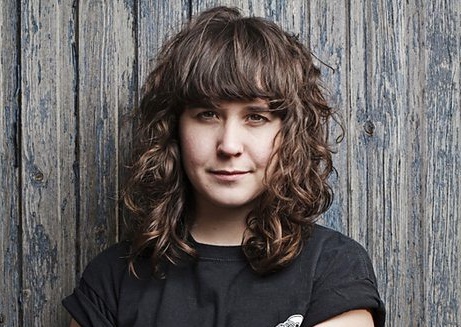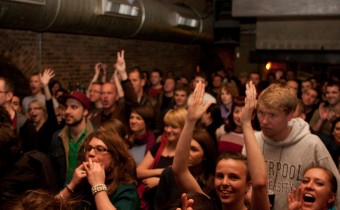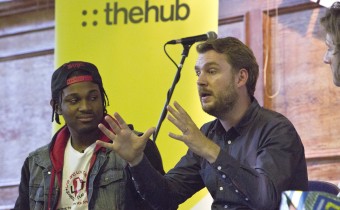Jen Long on how young music fans are pioneering new ideas in the live music circuit
Jen Long co-presents Radio 1′s BBC Introducing show which champions unsigned and self-signed bands. It’s helped propel acts including Jake Bugg, Florence and The Machine, Rizzle Kicks and Gabrielle Aplin into the mainstream.
As well as presenting, Jen also runs her own label and produces a music zine – basically everything she can do to promote great new music.
That makes her well placed to comment on the difficulties faced by young bands going on the road and the young fans who desperately want to see them. It’s an expensive business where enthusiasm is the main currency.
the hub‘s own research backs this up. And as music sales return diminishing revenues – we need new models for touring and commissioning. Beyond-mainstream artists need more young people to come to their gigs to compensate for smaller product turnover – and advances at the digital frontier need to be exploited to get more people to gigs, and to spend more money when they are there.
On the touring front, Jen Long says; “Lots of bands don’t mind shelling out their own cash to do a show. But other bands who aren’t so happy to say go to Scotland to do a gig. But the bands who put in their own money in at the start are often the ones who do well later.”
Bands who bankroll their own tours will reduce hotel and catering costs by crashing on strangers’ sofas, says Long: “In the States lots of bands have used coach surfing sites to go on tour.”
But fans too are paying the price for a squeezed industry. A significant chunk of those who buy music are young. The latest BPI research shows that 13 to 19-year-olds are the second biggest market after early 20-somethings. But frustratingly for many of them, seeing their favourite band live is often impossible. As income from album sales continues to fall and downloading is dipping too, income from touring is now a central plank of the business plan for any band who hopes to give up the day job. But the current live music circuit is pricing many younger fans out of the market, top-slicing valuable revenues for up-and-coming young artists.
Stadium gigs charging top dollar are thriving but smaller music venues (those that are still open) are feeling the squeeze. Falling public subsidy and the recession mean bar takings are now even more important – leaving under-age fans out in the cold and making experimental programming too risky for many bookers.
Long says: “Most bands are playing over 18 shows. In a venue people have to pay to get in and on top of that maybe £4 for a beer.” And the cost is not the only factor making it hard for young fans to see up-and-coming artists says Long. “It also depends where you live.
“When you live in a city there is plenty of live music to pick from but it’s different for people who don’t live in the city unless there’s a venue like your local youth centre that’s putting on music. When I was growing up my school put on gigs. We went, not necessarily because it was a named band, but because you were going out with your mates.”
Innovative music promoters have found new ways to circumvent the existing venue circuit – inspired by the now established house gig circuit in the US. Long says; “House gigs really took off there because in a lot of states the drinking age is 21.”
Long started putting on her own house gigs while at Cardiff University, studying for a journalism and broadcast degree, where she hosted bands in her student kitchen. “I used to put on house gigs not just because touring bands didn’t have somewhere to play but because it was a fun way of putting on a gig. It was cheap and we’d pass a hat round and everyone would put in a few quid to pay the band.”
That that sense of fun and an alternative scene has inspired gigs in rehearsal spaces too. “People bring their own drink and you get the atmosphere of seeing a gig somewhere a bit different from going to a normal venue. It feels more exciting,” Long says.
If you’ve got an idea to capitalise on new thinking among young musicians and fans which will make working in the music industry (particularly in non-mainstream) more viable, then Joining the Dots is offering £10,000 funding and expert mentoring to six individuals or organisations who can come up with a game-changing models for
* touring and commissioning new music
* getting more young people to beyond-mainstream gigs
* using digital technology to get more people to gigs and spend more when they are there
· Applications for Joining the Dots funding are open until 31st January 2014.
· Jen Long presents BBC Introducing with Ally McCrae at midnights on Sundays
* Jen Long explores what a “music career” means in the 21st century and how young people’s passion for music can be harnessed in many different ways.




